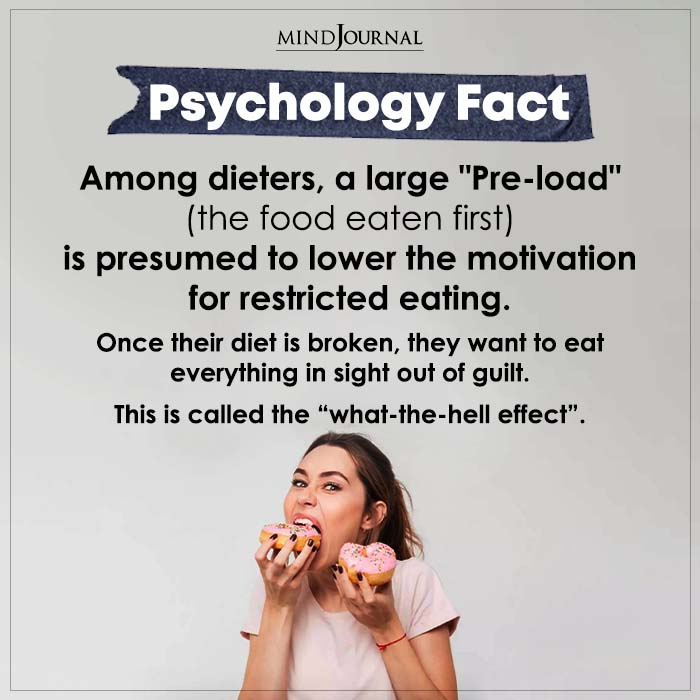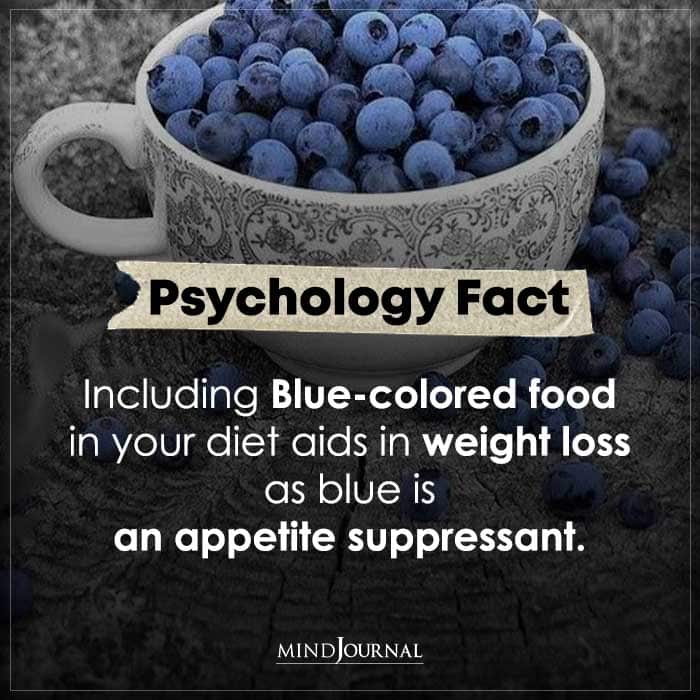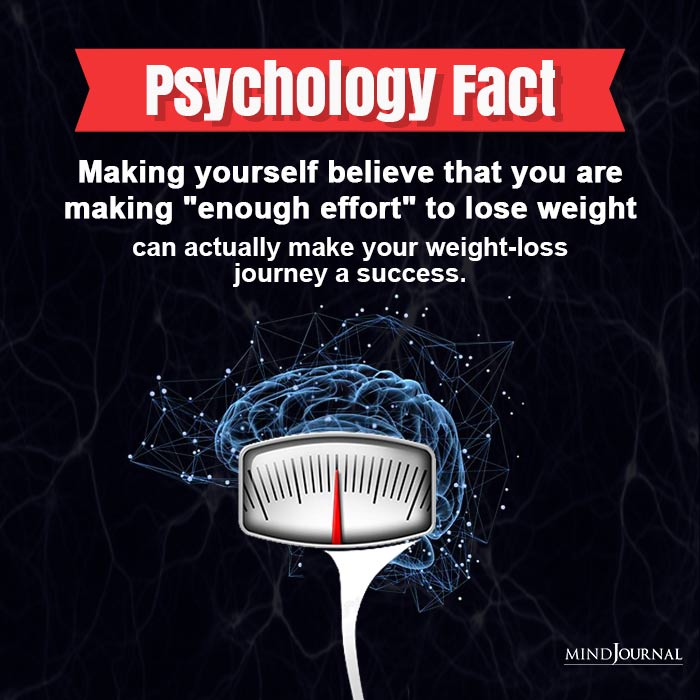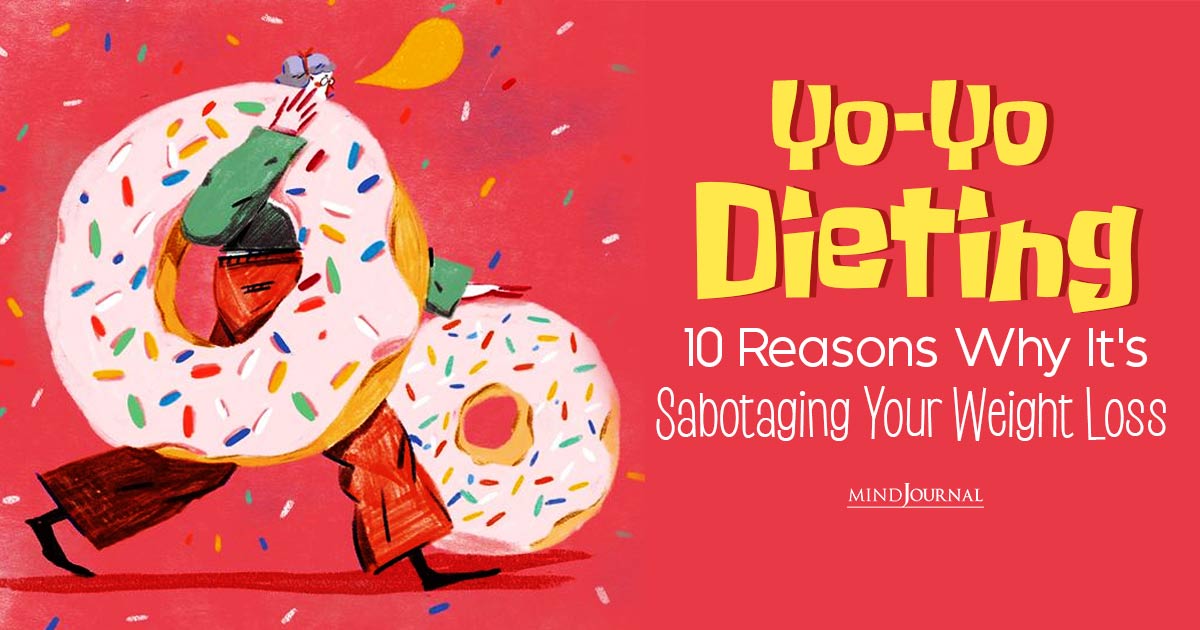Have you ever been on a diet, lost weight, and then gained it all back (and maybe even more)? If so, you’re not alone. This pattern of weight loss and regain is known as yo-yo dieting. Let’s explore yo-yo dieting meaning, yo-yo dieting effects, dangers, benefits, techniques, and tips to help you break the cycle.
What is yo-yo dieting?
Yo-yo dieting meaning: Yo-yo dieting, also known as weight cycling, is a pattern of weight loss and regain that occurs when individuals repeatedly lose weight and then regain it.
The cycle usually involves a period of calorie restriction and increased physical activity, followed by a return to old eating habits and weight gain. This cycle can repeat several times over the course of months or years.
Related: 8 Questions To Ask Before Going On A Diet
Understanding yo-yo dieting meaning
So now we know what is yo-yo dieting. But what does it include? Well, this dieting pattern typically involves repeatedly losing and regaining weight over time by following a restrictive diet to lose weight, then regaining the lost weight once the diet is no longer maintained.
The cycle can repeat multiple times, leading to fluctuations in body weight. Yo-yo dieting is considered unhealthy because it can put stress on the body, affect metabolism, and lead to potential negative effects on physical and mental health.

It may also make it harder for individuals to maintain a stable, healthy weight in the long term. To achieve sustainable and healthy weight management, it is essential to adopt balanced eating habits, regular physical activity, and a lifestyle that can be maintained in the long run.
Crash diets and extreme weight loss methods are generally discouraged because they often lead to yo-yo dieting and are not conducive to overall well-being.
The cycle of yo-yo dieting
To better understand yo-yo dieting meaning, we need to understand the process of this unhealthy dieting practice. Yo-yo dieting involves a cycle of weight loss followed by weight regain, which can be harmful to the body and overall health.
Here’s how this cycle of weight loss and gain works –
1. Initial weight loss
The Yo-Yo dieting process often begins with a person deciding to lose weight. They might follow a restrictive diet, cut out certain food groups, drastically reduce calorie intake, or try fad diets that promise quick results.
2. Caloric deficit
During the initial weight loss phase, the individual typically consumes fewer calories than their body needs for daily activities and functions. This caloric deficit leads to weight loss as the body starts to use stored fat for energy.
3. Lack of sustainability
One of the primary issues with yo-yo dieting is that the restrictive eating patterns are often challenging to maintain in the long term.
These diets can be monotonous, lacking essential nutrients, or overly restrictive. This can make them difficult to stick with for extended periods.
4. Return to old habits
Eventually, the person may find it challenging to maintain the strict diet and may start to revert to their old eating habits. This can involve returning to a regular diet or even overeating due to feelings of deprivation during the dieting phase.
5. Weight regain
As a result of resuming normal eating habits or overeating, the body starts to regain the lost weight. This weight regain may even lead to surpassing the person’s initial weight.
6. Repeating the cycle
After experiencing weight gain, the person may feel dissatisfied with their appearance and health, prompting them to start a new diet and attempt to lose weight again. The cycle then repeats, leading to additional weight fluctuations over time.
Related: How Your Diet Affects Your Productivity: The Scientific Links
Yo-yo dieting effects
According to yo-yo dieting meaning, this dieting practice can have several negative effects on your body and mind. Here are some of the most common yo-yo dieting effects:
1. Slower metabolism
Yo-yo dieting can slow down your metabolism, making it harder to lose weight in the future. This happens because your body adapts to the calorie restriction during the diet, and when you return to your old eating habits, your metabolism slows down to conserve energy. This is one of the most basic dangers of yo-yo dieting.
Here are some additional aspects to consider:
- When you lose weight, your body naturally burns fewer calories because there is less body mass to maintain.
- Yo-yo dieting can further slow down your metabolism, making it even harder to lose weight in the future.
- A slower metabolism can also make it easier to gain weight, even if you’re eating the same amount of food as before.
2. Increased risk of chronic diseases
Yo-yo dieting has been linked to an increased risk of chronic diseases such as heart disease, diabetes, and high blood pressure.
This is because the cycle of weight loss and regain can cause fluctuations in blood sugar, cholesterol, and blood pressure levels, which can lead to long-term damage to your body.
Here are some additional aspects to consider about these yo-yo dieting effects and dangers –
- Fluctuations in blood sugar levels can lead to insulin resistance, which is a precursor to diabetes.
- Yo-yo dieting can also increase the risk of developing heart disease by contributing to the buildup of plaque in the arteries.
- Fluctuations in blood pressure levels can damage the blood vessels and increase the risk of stroke.
3. Mental health issues
Yo-yo dieting can also have negative effects on your mental health. The constant cycle of weight loss and regain can lead to feelings of frustration, disappointment, and low self-esteem.
This can also lead to more serious mental health issues such as anxiety and depression. This is one of the most serious dangers of yo-yo dieting.
Here are some additional aspects to consider:
- Yo-yo dieting can make it difficult to maintain a positive body image, which can contribute to the development of eating disorders.
- The constant cycle of weight loss and regain can also lead to feelings of hopelessness and a lack of control over your body.
- Yo-yo dieting can also cause stress and anxiety, which can have negative effects on both your mental and physical health.
4. Nutrient deficiencies
Yo-yo dieting can cause nutrient deficiencies because the calorie restriction during the diet may limit the amount of vitamins and minerals you consume. This can lead to health problems such as anemia, osteoporosis, and weakened immune system.
Here are some additional aspects to consider:
- A lack of iron can lead to anemia, which can cause fatigue and weakness.
- A lack of calcium can lead to osteoporosis, which is a condition that weakens the bones and makes them more susceptible to fractures.
- A weakened immune system can make it easier to get sick and may also increase the risk of developing certain types of cancer.
5. Gallstones
Rapid weight loss during a yo-yo diet can increase the risk of developing gallstones. Gallstones are hard deposits that form in your gallbladder, and they can cause severe pain and discomfort.
Here are some additional aspects to consider:
- Gallstones can be caused by rapid weight loss because the liver produces more cholesterol than the bile can dissolve.
- When this excess cholesterol crystallizes, it can form gallstones.
- Gallstones can cause pain in the upper right side of the abdomen, nausea, and vomiting.

6. Eating disorders
Yo-yo dieting effects can also increase the risk of developing eating disorders such as bulimia and anorexia. This is because the cycle of weight loss and regain can lead to an unhealthy relationship with food and a distorted body image.
Here are some additional aspects to consider about these dangers of yo-yo dieting –
- Yo-yo dieting can make it difficult to maintain a healthy relationship with food, which can contribute to the development of eating disorders.
- The constant cycle of weight loss and regain can also make it difficult to maintain a healthy body image, which can further contribute to the development of eating disorders.
- Eating disorders can have serious physical and mental health consequences and require professional treatment to overcome.
Related: What Is Intermittent Fasting And How It Can Help You Lose Weight
7. Hormonal imbalances
Research on yo-yo dieting effects shows it can cause hormonal imbalances in the body, which can lead to a variety of health problems. Here are some additional aspects to consider:
- Hormonal imbalances can cause irregular menstrual cycles and fertility problems in women.
- In men, hormonal imbalances can cause a decrease in testosterone levels, which can lead to a variety of health problems such as decreased muscle mass and increased body fat.
- Hormonal imbalances can also lead to mood swings, fatigue, and insomnia.
8. Loss of muscle mass
Yo-yo dieting can cause a loss of muscle mass, which can lead to a slower metabolism and increased risk of weight gain in the future. Here are some additional aspects to consider:
- When you lose weight, you may lose both fat and muscle mass.
- Yo-yo dieting can cause a loss of muscle mass because the body may break down muscle tissue for energy when calorie intake is low.
- A loss of muscle mass can also make it harder to maintain weight loss in the future, as muscle tissue burns more calories than fat tissue.
9. Increased hunger
Yo-yo dieting can lead to increased hunger and cravings, which can make it harder to maintain a healthy diet. Here are some additional aspects to consider about these dangers of yo-yo dieting –
- When calorie intake is restricted during a diet, the body may increase hunger signals to try to maintain energy balance.
- This can lead to overeating and weight gain when the diet ends and calorie intake returns to normal.
- Increased hunger and cravings can also make it harder to maintain a healthy diet and can contribute to the cycle of weight loss and regain.
10. Fatigue and low energy
Yo-yo dieting can cause fatigue and low energy levels due to a lack of nutrients and calories. Here are some additional points to consider:
- When calorie intake is restricted during a diet, the body may not receive enough energy to maintain normal activities.
- This can lead to fatigue, low energy levels, and difficulty concentrating.
- Yo-yo dieting can also lead to nutrient deficiencies, which can further contribute to fatigue and low energy levels.
Yo-yo dieting can have several negative effects on your body and mind. By breaking the cycle of yo-yo dieting and focusing on sustainable lifestyle changes, you can improve your physical and mental health and avoid these negative consequences.
Well, now that we have a clear idea about what is yo-yo dieting, yo-yo dieting meaning and its effects, let’s find out how we can stop this harmful practice.
Benefits of breaking the yo-yo dieting cycle
Breaking the yo-yo dieting cycle can have several benefits for your body and mind. Here are some of the most common benefits of breaking the cycle:
1. Improved metabolism
By maintaining a healthy weight and eating habits, you can improve your metabolism and make it easier to lose weight in the future.
2. Reduced risk of chronic diseases
By getting rid of such unhealthy dieting practices, you can reduce your risk of chronic diseases such as heart disease, diabetes, and high blood pressure.
3. Improved mental health
By breaking the cycle of weight loss and regaining weight back, you can improve your mental health and reduce the risk of developing anxiety and depression.
Related: 6 Ways Your Diet Contributes To Your Mental Health
Techniques to break the yo-yo dieting cycle
Knowing what is yo-yo dieting and why you need to stop it is not enough, you need to actively overcome this practice. If you have gained some idea about the dangers of yo-yo dieting and want to stop such diets, here are some strategies to get started –
1. Focus on sustainable changes
Instead of focusing on short-term weight loss, focus on making sustainable changes to your lifestyle. This includes eating a balanced diet, practicing portion control, and increasing your physical activity.
2. Avoid extreme diets
Avoid extreme diets that promise rapid weight loss. These diets are often unsustainable and can lead to nutrient deficiencies and other health problems.
3. Practice mindful eating
Practice mindful eating by paying attention to your hunger and fullness cues. This can help you avoid overeating and make healthier food choices.
4. Seek professional help
If you’re struggling to break the cycle of yo-yo dieting, seek professional help. A registered dietitian or therapist can help you develop a healthy relationship with food and your body.

Tips to avoid yo-yo dieting
Here are some tips that will help you to stop this practice after understanding the dangers of yo-yo dieting –
1. Set realistic goals
Set realistic goals for weight loss and focus on small, achievable changes to your lifestyle.
2. Don’t skip meals
Skipping meals can lead to overeating and can disrupt your metabolism. Instead, focus on eating balanced meals throughout the day.
3. Practice portion control
Practice portion control by using smaller plates and measuring your food. This can help you avoid overeating and can make it easier to maintain a healthy weight.
4. Find a support system
Find a support system of friends and family who can encourage and motivate you to maintain a healthy lifestyle.
Related: The 8 Biggest Reasons You Struggle With Consistency In Losing Weight
Takeaway
Yo-yo dieting is a common pattern of weight loss and regain that can have negative effects on your body and mind. It can lead to slower metabolism, increased risk of chronic diseases, and mental health issues.
It can also cause nutrient deficiencies, gallstones, and eating disorders. However, by breaking the cycle of yo-yo dieting, you can reap several benefits such as improved metabolism, reduced risk of chronic diseases, and improved mental health.
You can break the cycle by focusing on sustainable changes, avoiding extreme diets, practicing mindful eating, and seeking professional help if needed. Additionally, you can avoid yo-yo dieting by setting realistic goals, not skipping meals, practicing portion control, and finding a support system.
Remember, a healthy lifestyle is a journey, not a destination. By making small, sustainable changes, you can achieve your health goals and break the cycle of yo-yo dieting for good.
Frequently Asked Questions (FAQs):
Is Yoyo dieting healthy?
No, Yo-yo dieting is not healthy. It can negatively impact metabolism, emotional well-being, and increase the risk of chronic diseases.
Does Yoyo dieting work?
While Yo-yo dieting may lead to temporary weight loss, it is not effective or sustainable for long-term weight management.
Why is yo-yo dieting a poor choice?
Yo-yo dieting is a poor choice because it can harm metabolism, lead to nutrient deficiencies, and negatively affect emotional well-being.










Leave a Reply